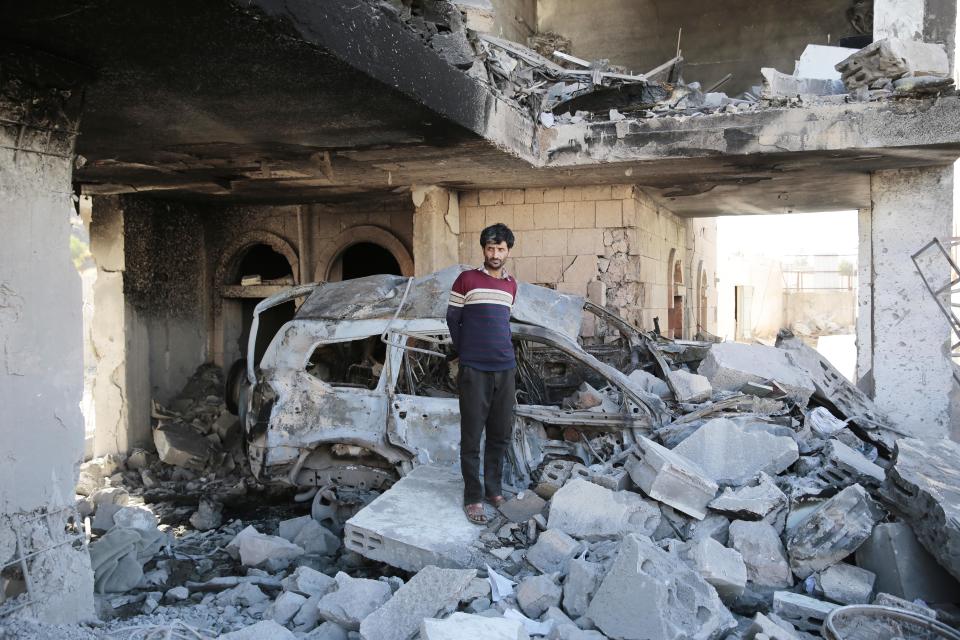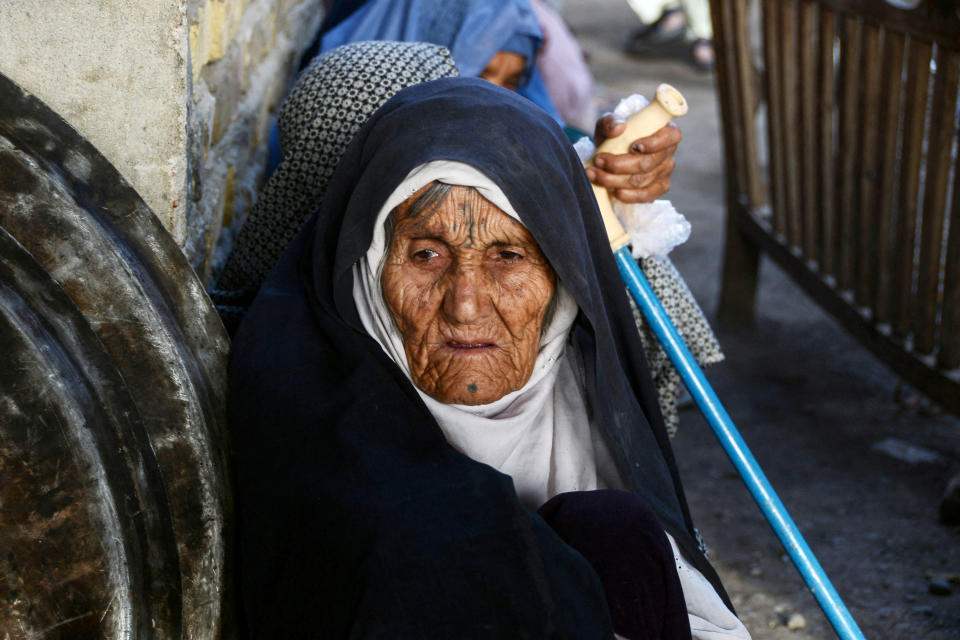As the world watches Russia's war, other global crises see critical support fading
With government and public attention locked on Russia’s invasion of Ukraine, there are growing fears that other humanitarian crises — such as those gripping Afghanistan, Yemen and the Horn of Africa — will worsen without drastic intervention.
An estimated 19 million Afghans — nearly half the population — are experiencing extreme food insecurity in a crisis that has escalated dramatically since the U.S. withdrew in August, ending two decades of military presence.
In Yemen, around two-thirds of the population, or 19 million people, also face food insecurity in a country heavily reliant on aid handouts. About 14 million people in Kenya, Somalia and Ethiopia are on the brink of starvation.

Director-General Robert Mardini said the International Committee of the Red Cross was “starting to see some decline” in global humanitarian funding since the Ukraine crisis began.
“With the limelight on Ukraine — with all the support that Ukraine deserves and will continue to get — will that be to the detriment of other crises? Time will tell,” he said.
Mardini said the Red Cross’ humanitarian activities for 2022 were only 42 percent funded, compared to 52 percent at the same point last year.
Athena Rayburn, the director of advocacy, communications and campaigns at Save the Children Afghanistan, said the situation in the country had deteriorated markedly since the U.S. withdrawal. Denied the headlines that accompanied the momentous events of just nine months ago, she fears worse is to come.
“Every single social safety net that existed prior to August has been gutted. Schools are shut, hospitals are shut, and food, fuel and rent prices have all gone up. It’s driving people into a state of desperation,” she said.
Rayburn said governments were dipping into their humanitarian aid budgets earmarked for Afghanistan and other crisis-hit countries to “make room for their response to the Ukraine.”
Reports surfaced last month that Germany had even evicted Afghan refugees from their accommodations to make way for arrivals from Ukraine.
“There are a lot of dynamics around Ukraine as to why it is getting so much attention,” Rayburn said. “If you look at the public swell of support compared to the scale of the crisis in Afghanistan, that’s completely faded.”

In addition to diverting the attention of governments and the public, there is mounting evidence that the war in Ukraine will worsen crises around the world, siphoning off development aid while causing the prices of some goods to spiral.
Daniel Maxwell, the Henry J. Leir professor in food security at Tufts University’s Friedman School of Nutrition Science and Policy, said the war was adversely affecting countries already struggling to deal with the spiraling cost of wheat and maize, or corn.
“The invasion of Ukraine has had all these knock-on effects in terms of price and therefore makes all of those crises more severe because they’re all food-importing countries,” he said.
“With all the attention in the media and the sort of geopolitical priorities that Ukraine comprises, the amount of additional assistance for other parts of the world, I think, is going to be pretty constrained,” Maxwell said. “We should be able to think about two problems at once. But I’m not sure that there’s evidence that we’re fully doing that.”
In Yemen, a conflict has raged since a Saudi-led coalition of Persian Gulf states launched an assault on Houthi insurgents in 2015.

 Yahoo Autos
Yahoo Autos 